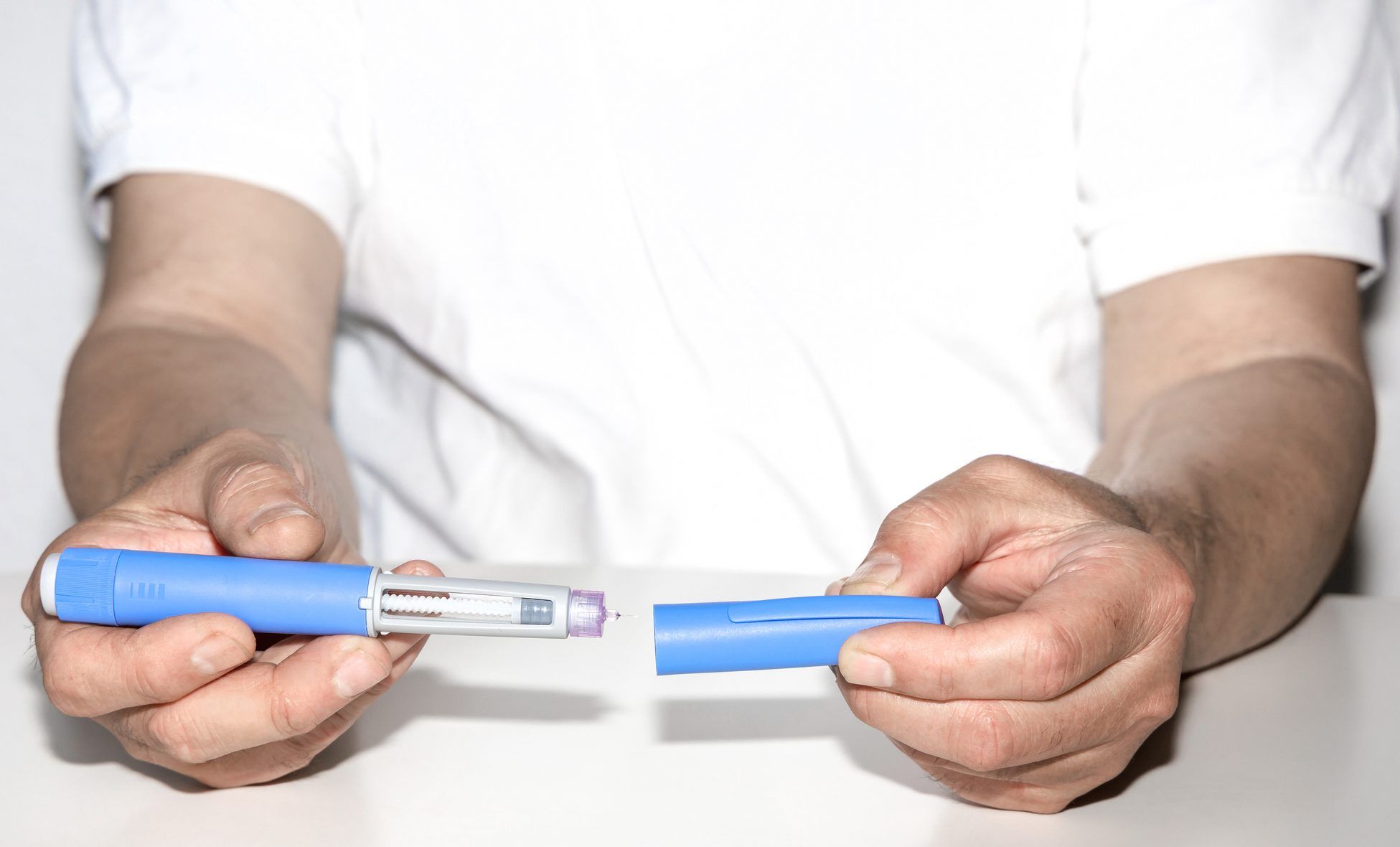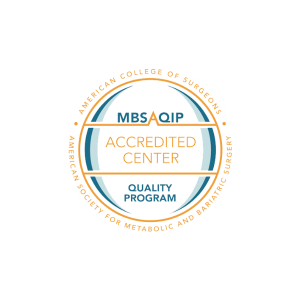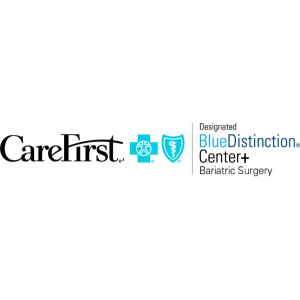Bariatric Surgery Center
Bariatric Surgery vs. GLP-1 Shots: Which Path Leads to Lasting Weight Loss For You?
Learn More About Bariatric Surgery
In Our Free Online Seminar!
Weight Loss Journey: Surgery or Medication – Unveiling the Pros and Cons of Each Path
When it comes to losing weight, you have several options that you can select from. One is to get weight loss surgery as many people choose to do. The other common option is to take medications. However, many people often have the question of whether weight loss surgery vs. medication is the best option for them. Let’s talk about some of the benefits and advantages of each of these methods. That way you can choose the best path for yourself.
GLP-1 AGONIST MEDICATIONS
Mimicking Natural Hormone: These medications replicate the actions of GLP-1 (Glucagon-like peptide), a gut hormone released after eating, promoting insulin production to lower blood sugar levels, causing delayed gastric emptying and and signaling fullness to reduce appetite.
Diabetes Control: They have significantly improved diabetes management, leading to weight loss ranging from 5% to 20% of total body weight.
Side Effects and Contraindications: While generally well-tolerated, up to 30% of users may experience side effects, including nausea, vomiting, diarrhea, and abdominal discomfort. Contraindications include allergies, certain medical histories, and pancreatitis.
Non-responders: some patients have minimal or no weight loss
Long-Term Use Required: Weight loss benefits depend on continued use; discontinuation often results in weight regain and the return of weight-related health issues.
Cost and Coverage Challenges: High costs and limited insurance coverage can hinder patient access, with out-of-pocket expenses averaging $10,000-13,600 annually.
BARIATRIC SURGERY
Various Surgical Options: Procedures like Gastric Bypass, Gastric Sleeve, and Duodenal Switch reduce stomach size, alter digestion, and decrease calorie absorption, effectively curbing hunger and changing metabolism.
Proven Long-Term Outcomes: Bariatric surgery typically results in 30-45% total body weight loss and remission of co-morbid conditions like diabetes, hypertension, and sleep apnea. Risks of serious complications are low (1-2%) with a mortality rate of 0.1%.
Risk of Weight Regain: Approximately 20% of patients may experience weight regain within 5 years due to factors like increased appetite and physical/mental health issues, but rarely to pre-surgery weight levels.
Insurance Coverage Criteria: Insurance often covers surgery for individuals with a BMI of 40 or higher, or those with a BMI between 35-39.9 with obesity-related co-morbidities, sometimes requiring documentation of supervised non-surgical weight loss within the past two years.
Surgery should be performed in accredited centers by specialized surgeons.
How do Bariatric surgery and GLP-1 medications compare?
Recent studies favor bariatric surgery for overall weight loss and BMI reduction, with similar effect for improvement in diabetes.
A meta-analysis of six randomized trials comparing all types of bariatric surgery and GLP-1 drugs, demonstrated that after surgery weight loss was higher by 22.7 kg or 50 lbs with higher BMI reduction (by 8.2 points) significantly higher in favor of bariatric surgery.
For the majority of patients, bariatric surgery was proven to demonstrate long-term sustainability of weight loss.

What are the emerging trends in obesity treatment: Surgery vs Medications vs Combined therapy?
Choosing the right path for weight loss is a personal decision. Whether it’s bariatric surgery or GLP-1 agonists, success hinges on your commitment, combined with lifestyle and dietary changes, leading to improved health and quality of life.
Understanding Your Options
-
Bariatric Surgery: This is a potent tool, especially for those with a higher BMI, offering significant weight loss and health improvements.
-
GLP-1 Agonists: These medications may be suitable for individuals with a BMI under 40 or those with specific considerations, providing a less invasive alternative to surgery.
Tailoring Treatment
- Personalized Approach: Consider your BMI and personal health when deciding. Patients with contraindications or intolerance to GLP-1 therapy may opt for surgery, while those at higher operative risk might choose medication.
- Preoperative Weight Management: Medical treatment can be beneficial before surgery, especially when insurance mandates non-surgical weight loss. It reduces surgical risks and paves the way for a safer procedure.
-
Pros and Cons
-
Medication Benefits: GLP-1 medications offer diabetes control, fewer medication interactions, and relatively minor side effects.
-
Cost Considerations: Lack of insurance coverage and high treatment costs can be a hurdle. Keep in mind that most patients experience weight regain upon discontinuation, making long-term use essential.
The Future of Weight Loss
-
Combined Approach: The future of Bariatric Medicine is personalized treatment approach, combined treatments, and catering to individual patient needs.
-
Comprehensive Care: Trusting a certified comprehensive Bariatric Center that offers a range of treatment options is key to achieving lasting weight loss results.
Recommended Treatment Approach:
Non-surgical weight loss therapy can be utilized for non-candidates for surgery, patients who desire to pursue non-surgical options, patients who prefer to avoid life-long medication use and with low BMI range 30-40. Majority of insurance plans require 3-6 months of supervised non-surgical weight loss attempt prior to authorizing surgery. Trial of weight loss medications is an optimal choice for such patients.
GLP-1 drugs demonstrate the lowest effectiveness in Mega-obese patients (BMI 50-60 or higher) making surgery the only valid option.
If the post surgery goal is not achieved, GLP-1 agonists can be used to improve treatment results along with additional dietary education and behavioral modifications.
Comparison of Bariatric Surgery to Weight Loss outcomes with GLP-1 agonists
| Parameter | Surgery | Medications |
|---|---|---|
Average % body weight loss; lbs Depending on procedure, drug | 35-45% or 60-100 lbs | 10-20% or 20-40 lbs |
Safety, serious morbidity | 3-4% | 2-3% |
Risk of weight regain | 30% within 5 years | 70% in a year after therapy stopped; 95% later on |
Co-morbidities resolution | Good | Good |
Results in BMI>45 | Good | Unknown |
Long-term outcome data, 5 y | Well documented | Unknown |
Diabetes remission, weight loss | Good, High | Good, Lower |
Completed treatment | 100% | 10% stopped due to intolerance |
Insurance coverage | 100% | 40% |
Cost | Co-payment, co-insurance | 250-1000$ per month |
Contraindications High medical risk, psychiatric | <5% | Hypersensitivity to drug |

Register For Our Free Online Weight Loss Seminar To Explore Bariatric Surgery options!
Why Choose Us for Your Weight Loss Journey: Unmatched Expertise in Transformative Weight Loss Surgery

All three surgeons were named
Top Docs 2022 in peer review
by “Baltimore Magazine”
-
Highest Ranking by Patients in Maryland
-
MBSAQIP National Accreditation
-
All major insurances accepted
-
Most major commercial plans are accepted
-
Rated as Top Docs in 2022 by referring physicians
-
“Exemplary” in surgery safety by MBSAQIP


Health care facilities recognized for expertise and cost efficiency in delivering specialty care.

Over 20 years of changing lives